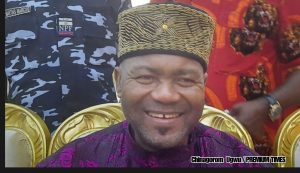USOPC chief defends federation’s actions in lawsuit


DENVER (AP) — The U.S. Olympic and Paralympic Committee’s CEO told her staff “we acted appropriately, expeditiously and in the best interest of the athletes” in the athlete-welfare cases the federation’s fired medical director complains about in a lawsuit.
In a letter sent to the staff and obtained by The Associated Press on Friday, CEO Sarah Hirshland spelled out the reasons for terminating Bill Moreau, who worked at the federation for 10 years — at the end as the vice president of sports medicine.
Hirshland also defends the USOPC’s handling of cases Moreau brought up in the lawsuit he filed this week; he claims his persistence in pressing higher-ups to take the cases more seriously led directly to his firing last May.
“Let me start by being very clear that there is absolutely no merit to the suggestion of retaliation as a cause for the separation of Bill Moreau,” Hirshland writes.
In the lawsuit, Moreau brought up a number of instances in which he urged the USOPC to take stronger action in the case of athletes who needed help.
One involved a 15-year-old female athlete who had suicidal thoughts after having sexual relations with a 20-year-old athlete while they were at the Drake Relays in Iowa. The USOPC was responsible for serving as the young woman’s legal guardian at the event, the lawsuit says. Moreau said he mentioned the incident to high performance chief Rick Adams, who started an internal investigation but didn’t grasp that the “underlying sexual contact constituted statutory rape under Iowa law,” the lawsuit said.
A second incident involved Moreau’s claims over his disagreement with the USOPC’s handling of a case involving an Olympic cyclist, Kelly Catlin, after she tried to commit suicide. Catlin did, in fact, commit suicide, and Moreau says in the lawsuit that it happened only a day after he raised his concerns to Adams for a second time.
Another incident involved a male USOPC employee receiving only an “oral reprimand” after using a public sauna while naked; the sauna was near where the women’s under-18 gymnastics team was training.
In the letter, Hirshland defended the USOPC’s handling of the cases.
“It is important for you to know that we feel strongly that in the cases Bill Moreau uses as examples against us, we acted appropriately, expeditiously and in the best interest of the athletes,” Hirshland wrote. “Unfortunately, he is mischaracterizing not only our actions — but his own. We welcome the forthcoming process of providing perspective around those events.”
Though this isn’t the first lawsuit along these lines filed by plaintiffs who believe the USOPC failed to protect them, it is the first that largely encompasses events that occurred since Hirshland took over as CEO in 2018.
The lawsuit paints a bleak picture of the overall effectiveness of the reforms Hirshland has instituted since taking over, as she tried to improve conditions for athletes in the wake of the federation’s mishandling of a a number of sex-abuse cases — most notably that of former gymnastics doctor Larry Nassar.
“That’s a very important part of this lawsuit, is to show that things have not changed at all,” Moreau’s attorney, Darold Killmer, told AP. “The USOC has gone to great lengths to try to convince Congress and the Department of Justice and the public that it has righted the ship, but it hasn’t.”
One of Hirshland’s moves, she writes, was to find a chief medical officer with “a broader medical background and significant experience as a practicing physician as well as administrative capability. In doing the work described above, it became clear that Moreau’s experience and his background as a Chiropractor did not position him to provide the leadership needed.”
A key part of Moreau’s lawsuit is the fact that the USOPC replaced him on an interim basis with Dustin Nabhan, who has the same type degree. Last month, the USOPC announced it was permanently filling the position with Dr. Jonathan Finnoff, who is a doctor of osteopathic medicine.







